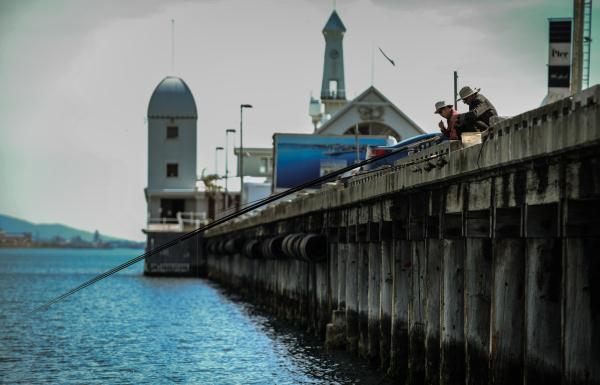CHRONIC job insecurity has led to a mental health crisis and high rates of suicide among Australian commercial fishers, according to a new Deakin University study published this month in Marine Policy journal.
Led by Deakin University maritime anthropologist, Dr Tanya King, the report ‘A Different Kettle of Fish: Mental health strategies for Australian fishers and farmers’ reveals a community under stress and struggling under the weight of government policy around fishing licences.
The report uses a case study based on the recent decision to ban netting on Corio Bay in favour of recreational fishing.
Dr King said the mental health issues of the farming industry were well documented and prevention programs well-funded, but less was known about the fishing industry.
She said part of the problem lay in how health and safety policies were applied across the board in the farming, fishing and agricultural industries without consideration of the particular issues affecting the fishing community.
“Why are the same health and safety policies applied to farmers, fishers and other agricultural workers despite there being particular features of small-scale fishing businesses that make them particularly vulnerable to depression, anxiety and suicide?” Dr King asked.
“Insecurity of fishing concessions, financial issues arising from banks tightening money to the industry, challenges accessing health care, physical risk, and politically-driven changes to government policy were all identified as major issues affecting fishers’ health and well-being in small-scale fishing businesses.
“Of particular concern for fishers is the insecurity around fishing concessions. This ultimately renders fisher livelihoods insecure and we know that insecure livelihoods are a big contributor to poor mental health.”
Dr King said research demonstrated a real need for the separation of health research in the fishing and farming industries.
“This would allow the specific issues facing the fishing industry to be addressed, rather than assuming that policies good for farmers will necessarily work for fishers.
“It’s not just people’s livelihoods, or even consumer access to fresh, sustainable local seafood – people’s lives are on the line,” she said.
Dr King said the Corio Bay fishing community was reeling from the ban on sustainable netting practices to make way for a recreational haven.
“The real twist in the Corio Bay case is that we know angling is good for mental health, but by promoting ‘recreational havens’ at the expense of community fishers, the government is prioritising the mental health of elite anglers over that of fishers who supply the majority of Victoria with fresh, sustainable seafood,” Dr King said.
“I just can’t imagine the same situation occurring in the agricultural sector; it would be like the government banning farmers’ tractors to appease those who grow a few carrots in the back yard.”
Commercial fishers face mental health crisis

Digital Edition
Subscribe
Get an all ACCESS PASS to the News and your Digital Edition with an online subscription
Addressing the Growing Childcare Workforce Gap in Geelong
On any weekday morning in Geelong, kids are strapped into car seats, parents scramble for missing shoes and everyone rushes to drop their kids...








